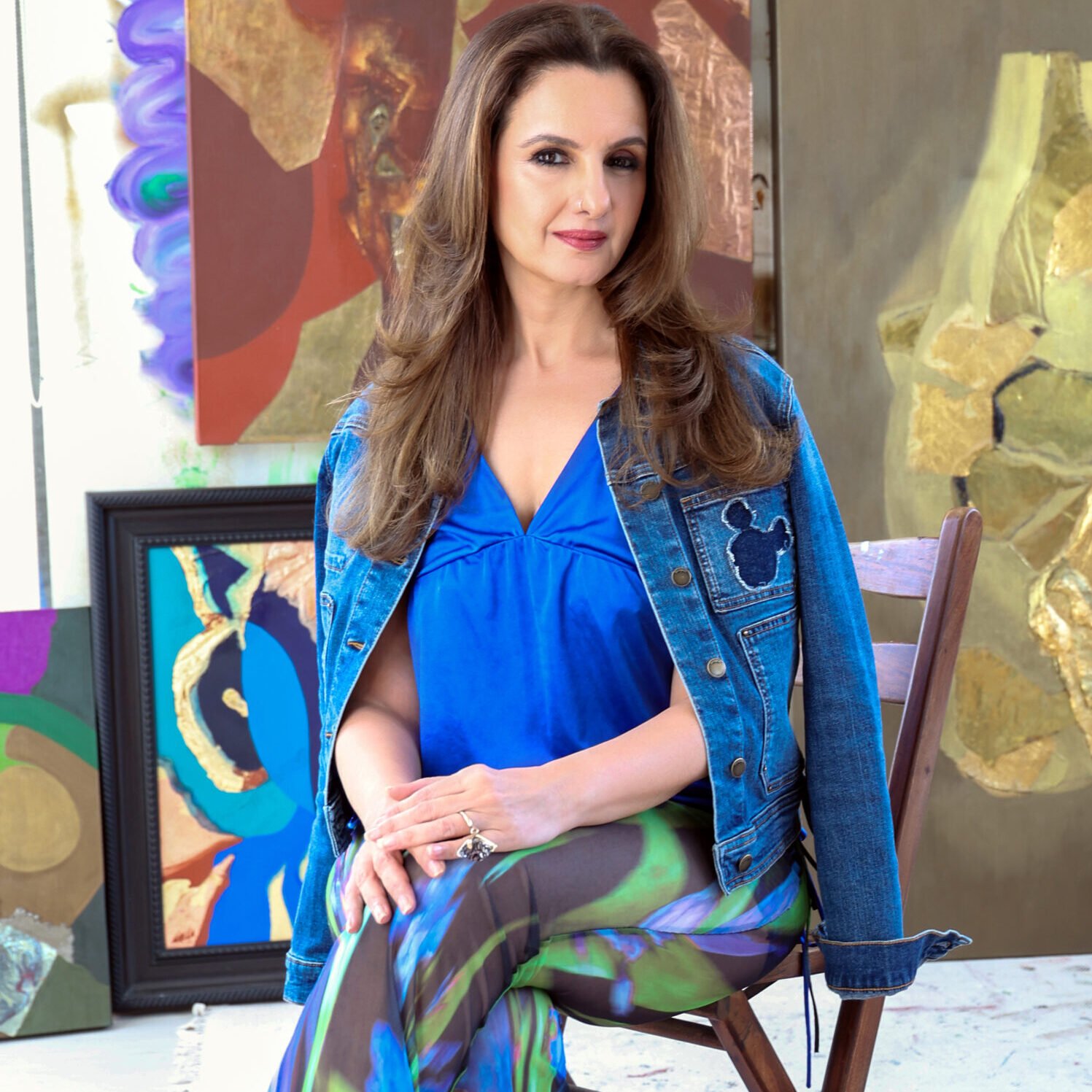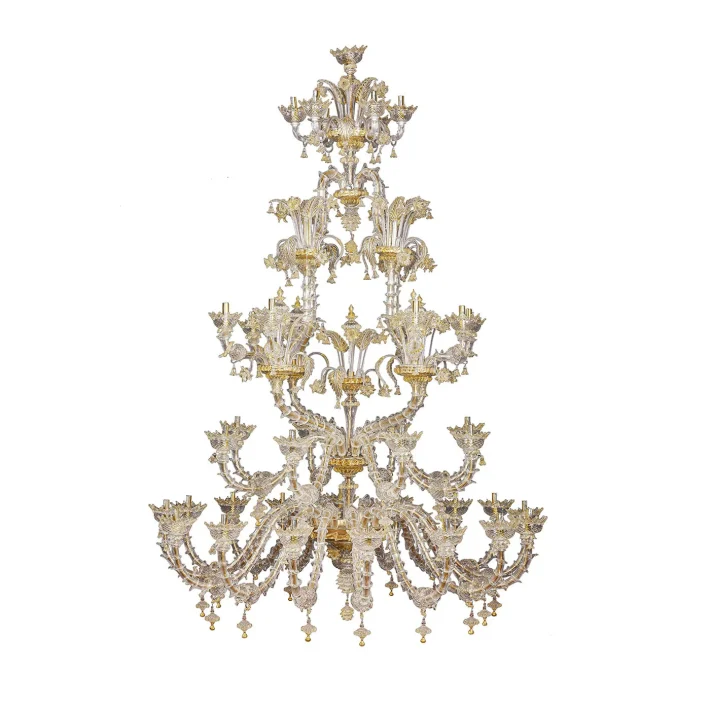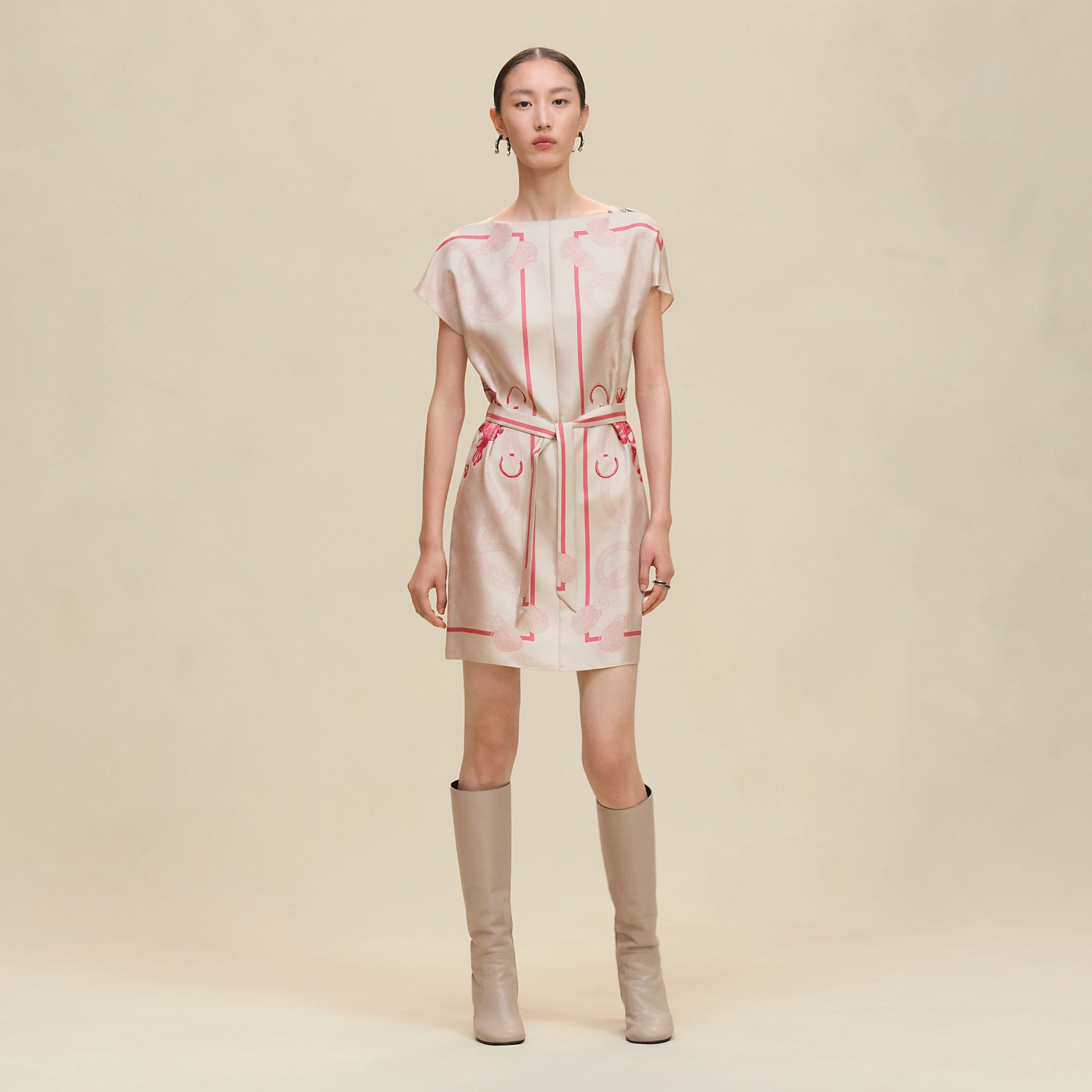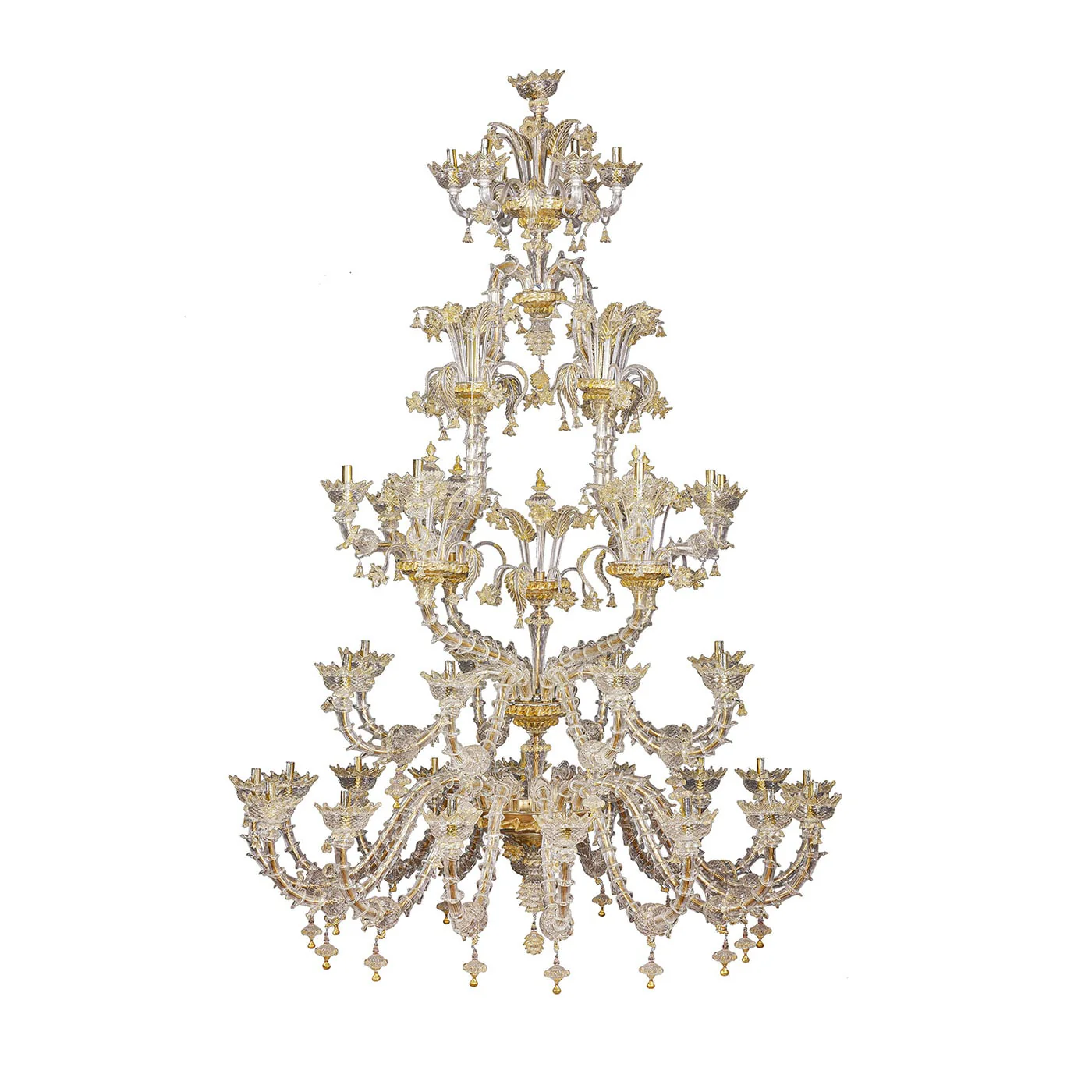Work, family and passion – Laila Khan Furniturewala shows us how a true artist balances it all.
By Amber Dias
Laila Khan Furniturewalla, Mumbai-based artist and scion of a legendary Indian film family, blends legacy with innovation in her contemporary abstract art. She draws on her creative lineage to explore themes of spirituality and tradition. Exhibiting globally since 2001, her work has been featured in London, New York, and across India, reflecting a deep, evolving dialogue between ancient wisdom and modern expression.
Excerpts from the interview…
What drew you to art and painting? Could you give us a glimpse into your journey? How has your style evolved over the years?
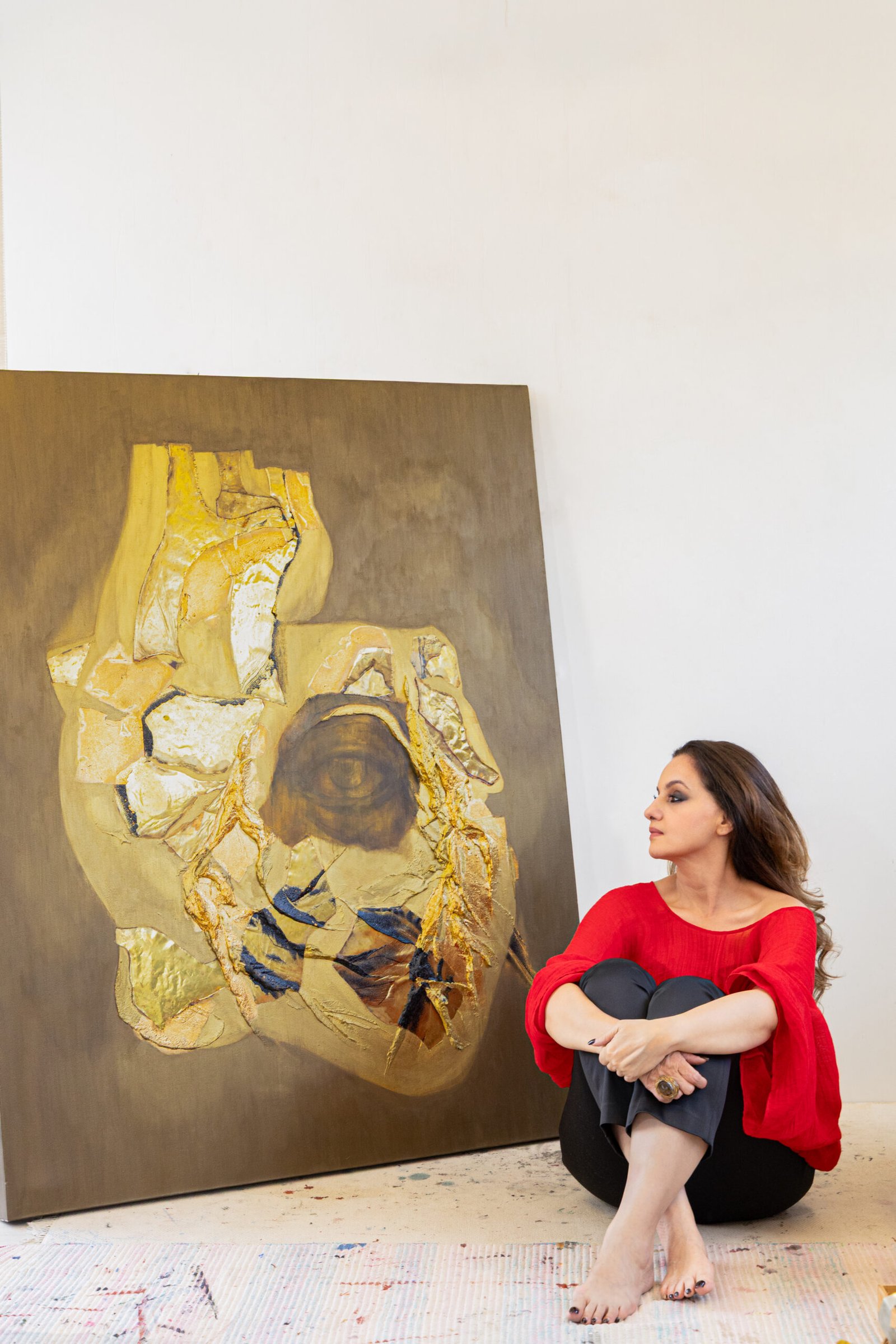
I come from an artistic family. Growing up, I was surrounded by artists, poets, and filmmakers. My parents loved art and enjoyed collecting it. My mother [Sundri Khan] recognised early on that I was going to be an artist. She encouraged and supported me a great deal. Without her support, I don’t think I would have become a practicing, exhibiting artist – I owe that to her. When I first started out, the female form absolutely enamoured me. I went on to study at the Slade School of Fine Art in London, where I worked from life. From there, I moved toward portraiture. I was very involved with form. But over time, I’ve been gradually shifting toward formlessness.
Your latest solo exhibition, ‘Untamed Heart’, comes after an 18-year hiatus. What led you back to the canvas?
The gap wasn’t planned; it just unfolded. After my last solo exhibition, life took over in different ways. I became involved in my husband’s [Farhan Furtinurewala] design and furniture business – Furniturewalla, which was growing rapidly. At the same time, I was raising my son and building our home, which required my full presence.
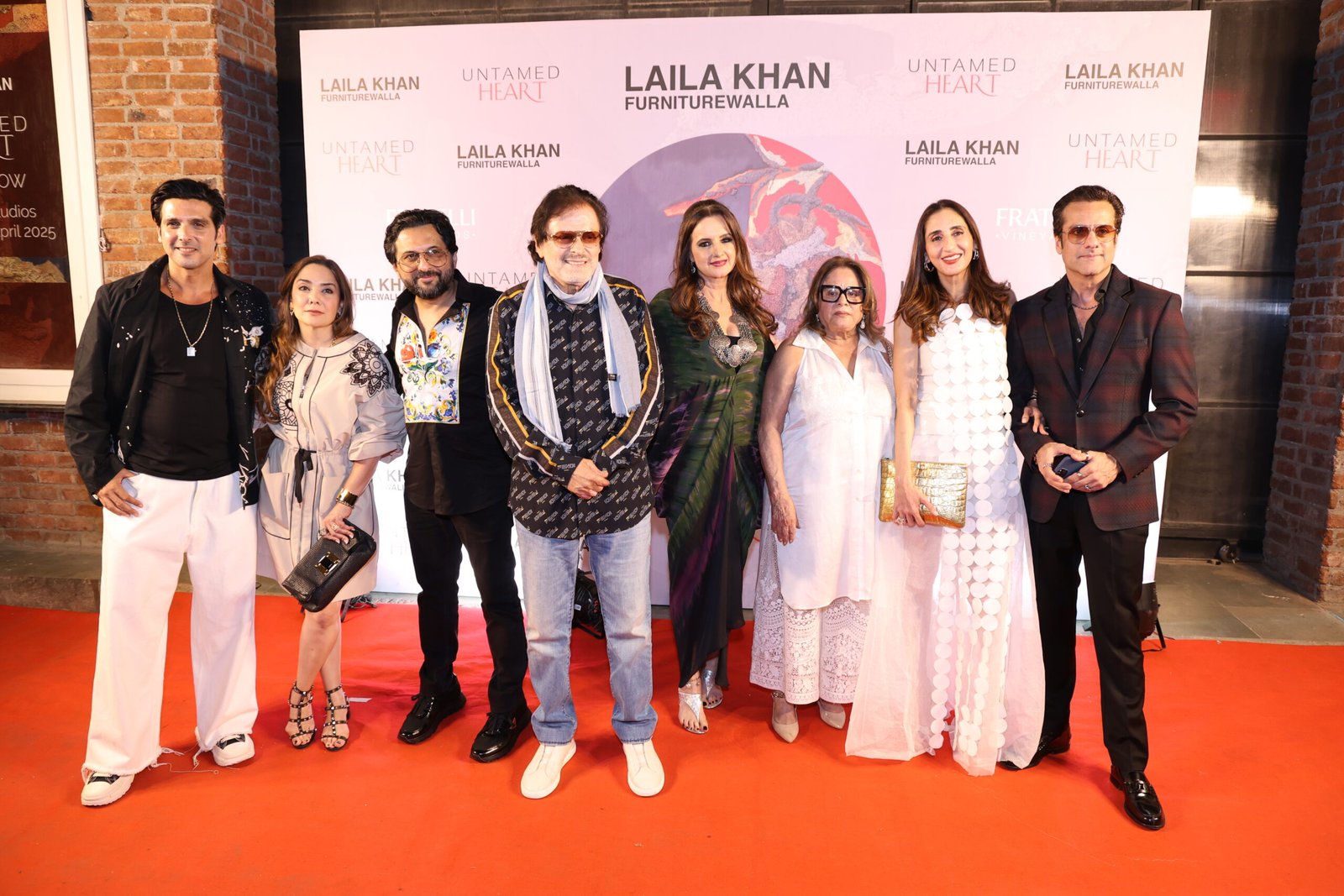
Through all those years, I never stopped painting. It remained a private space, something deeply personal and grounding. ‘Untamed Heart’ is the result of years of living, observing, creating in quiet and finally feeling the time was right to share again.
What does ‘Untamed Heart’ mean to you personally, not just as an exhibition, but as a turning point in your creative journey?
With this body of work, I reflected on a journey of breaking free. I wanted my expression to be completely unfiltered free from any boundaries, expectations, or limitations I had placed on myself.
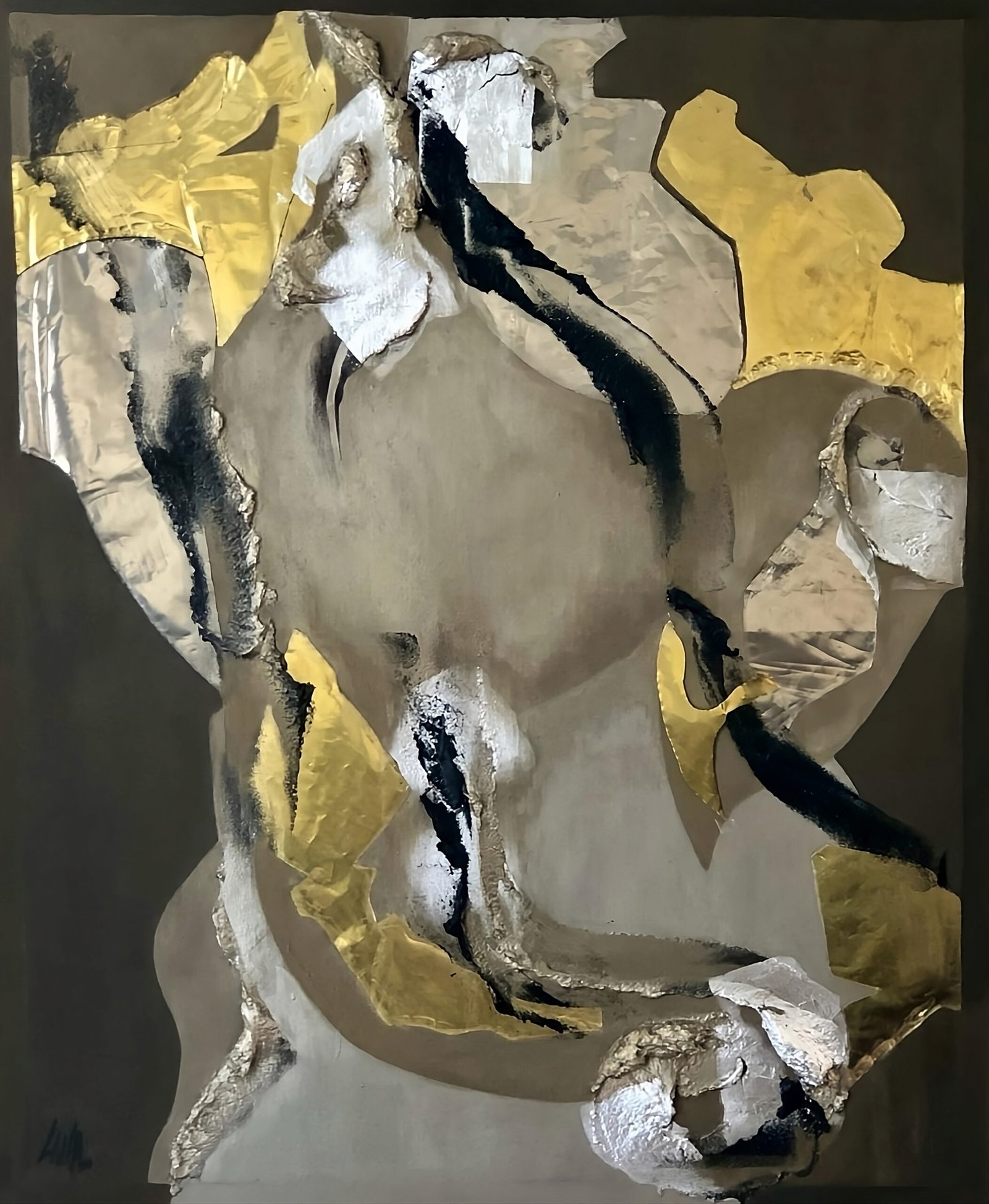
There was a newfound exploration of colour in this series. I wanted to invite viewers into a space that held both vulnerability and strength, chaos and beauty. My goal was to speak from the heart, in its purest form. The approach to this show was deeply personal and emotive.
You’ve contributed your artistic eye to Furniturewalla as well. How do you bring your fine art sensibility into design curation and brand building?
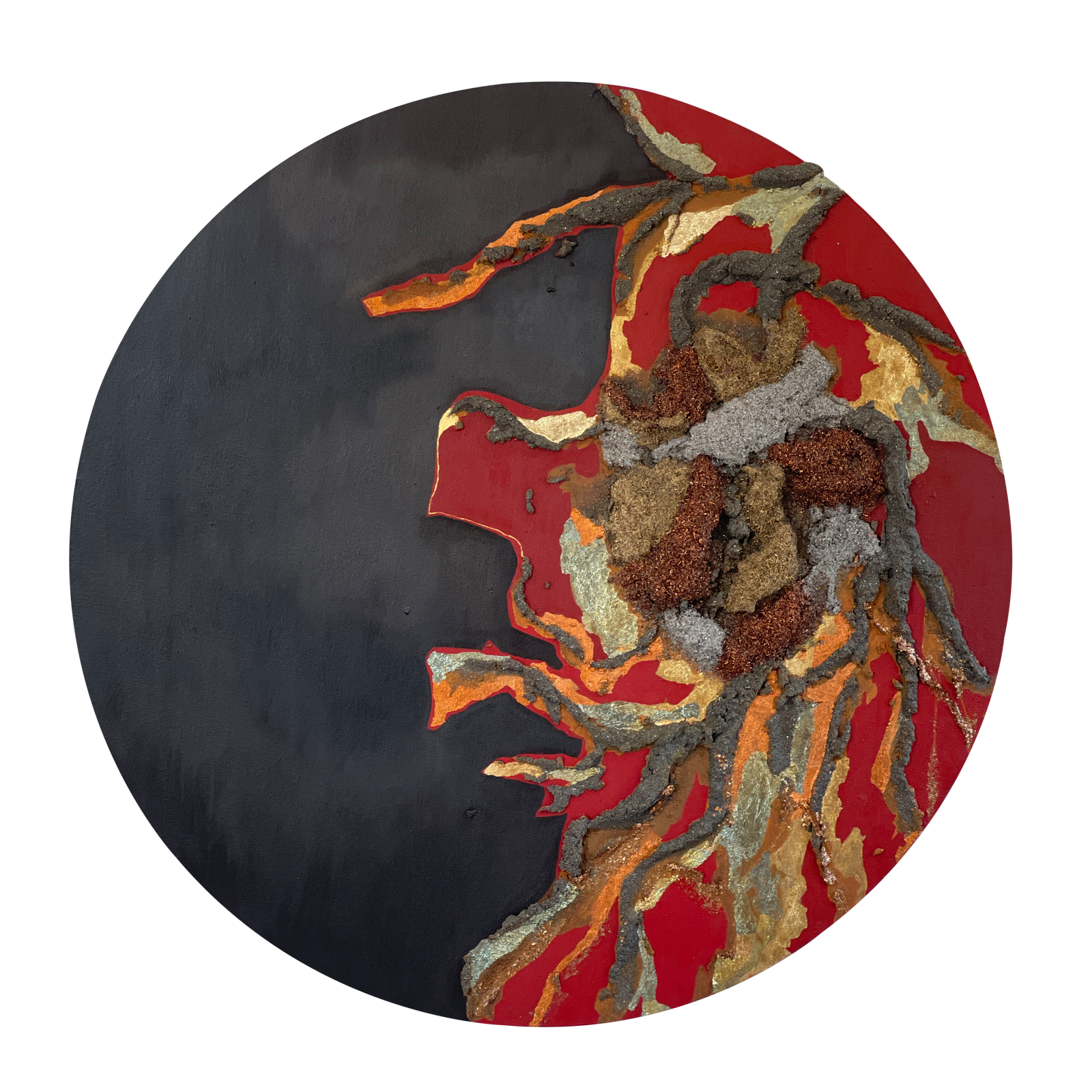
My husband and I reinvented his brand, Furniturewalla, in 2010, which focuses on luxury furniture, lighting, and home decor. We repositioned the brand, and I was deeply involved in the creative direction. I travelled extensively with him, handpicking beautiful pieces from around the world that reflected both value and quality. I also sourced affordable art that complemented our furniture collections – art that was accessible yet stylish, for design-conscious individuals who may not be able to invest in high-priced pieces. I truly enjoyed that phase, as I’m very passionate about interiors. It was incredibly fulfilling to curate and bring together beautiful things from across the globe.
Coming from one of India’s most iconic film families, how has that creative legacy shaped your identity as an artist?
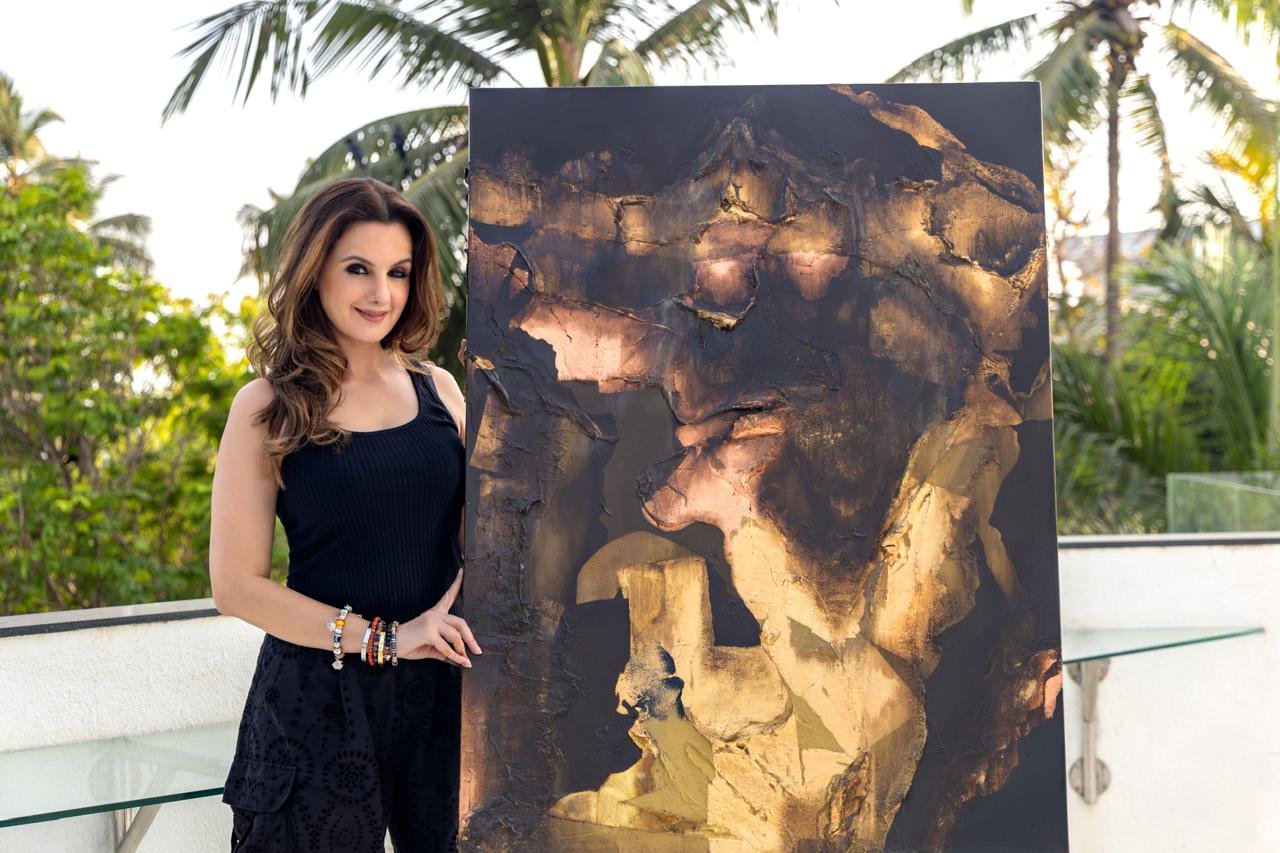
My father [Feroz Khan] was a renowned filmmaker in India, deeply modern and far ahead of his time, and he’s still considered one of the legends of Indian cinema. His films and music continue to be watched and appreciated even today, which to me is the ultimate test of true art: when something endures across generations and still holds meaning. That legacy has been incredibly inspiring to me. My father was also very critical of my work, his feedback was always honest and uncompromising. It challenged me to push myself, to grow continuously, and to approach my art from a place of truth and introspection.
Was there a moment growing up that made you realise you wanted to carve your own creative path, albeit in a different medium?
Yes, there was a time when I received many offers to act in films. I grew up surrounded by the influence and magic of cinema, it has always inspired me. But what drew me to art was the complete creative autonomy it offers. The process is raw, personal, and unfiltered, and I found that kind of truth-telling both powerful and deeply challenging. I also value solitude, I thrive in it. That space of being alone with my thoughts and creativity became sacred to me.
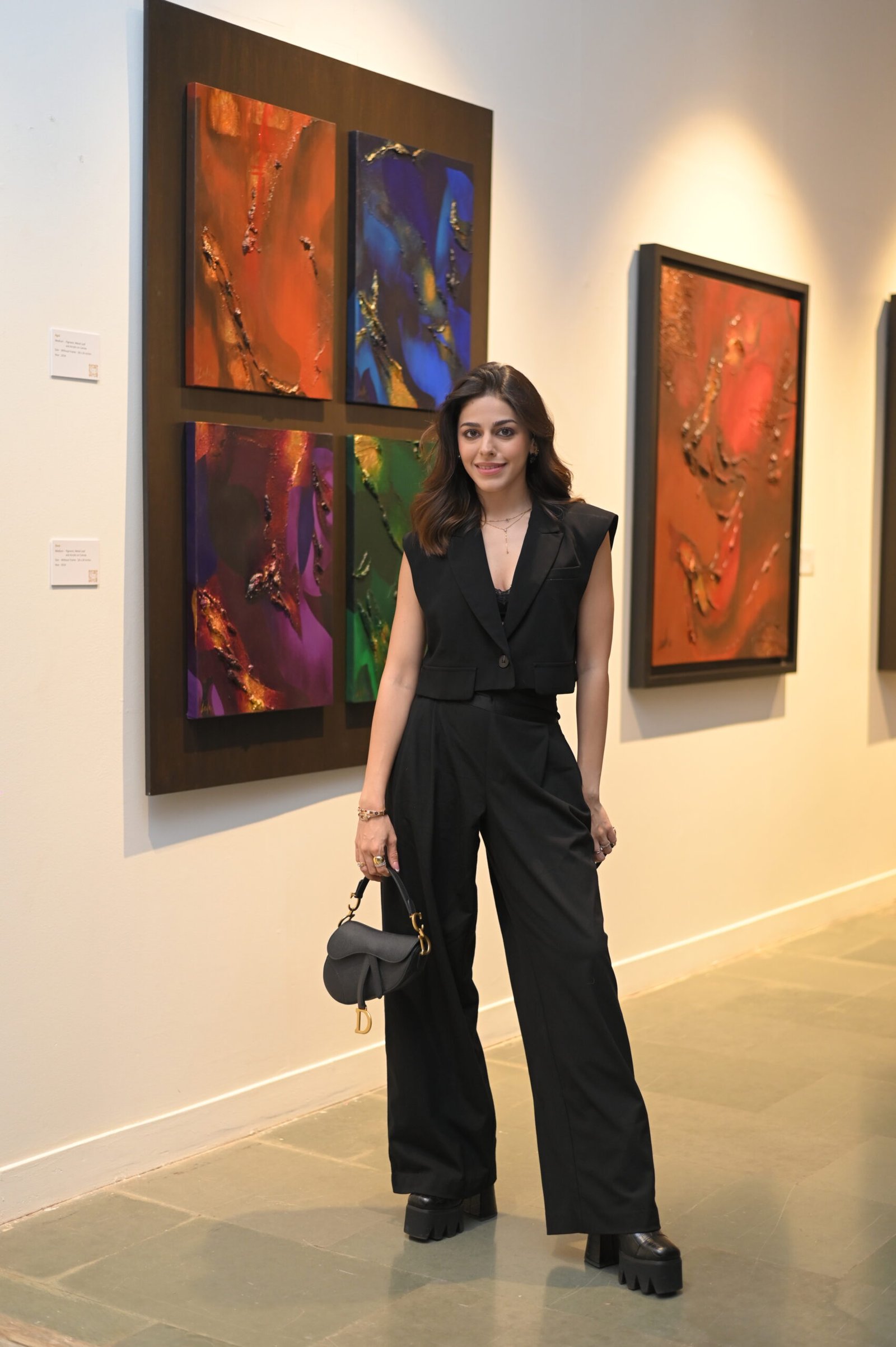
At a young age, when people started appreciating and even buying my work, I realised that this wasn’t just a passion, it was a path. A very personal one. And over time, I knew this was where I was meant to be.
How do you and your family stay connected through such dynamic and global lives? Are there rituals or habits you hold onto?
As a family – my husband, my son, my mother, my brother, and I – we’ve always been deeply aware of how important family connections are. We’re all intense individuals in our own ways, but there’s a shared understanding and appreciation for staying connected. My husband is a true family man who loves being at home, and we try to involve our son in most of our travels and daily routines. Sharing at least one meal together is non-negotiable – it grounds us.
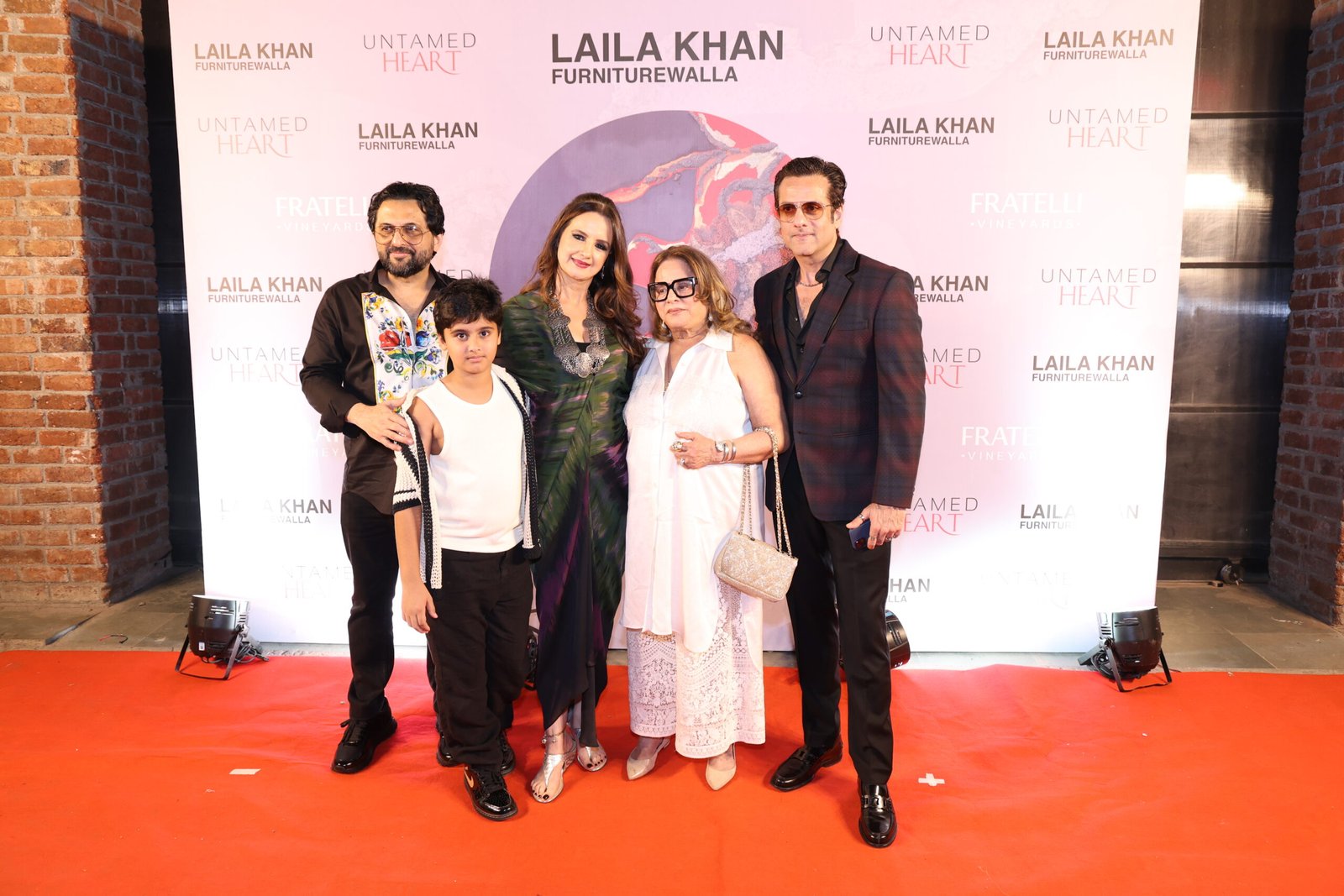
When choosing my studio space, I intentionally located it within our family home so I could remain close to my mother and brother. In a city like Mumbai, geography matters, and I even chose my son’s school based on proximity to his grandmother, so they could build a strong bond. These choices may seem small, but they shape the fabric of our lives.
What has nurturing your child taught you? And how has that journey evolved?
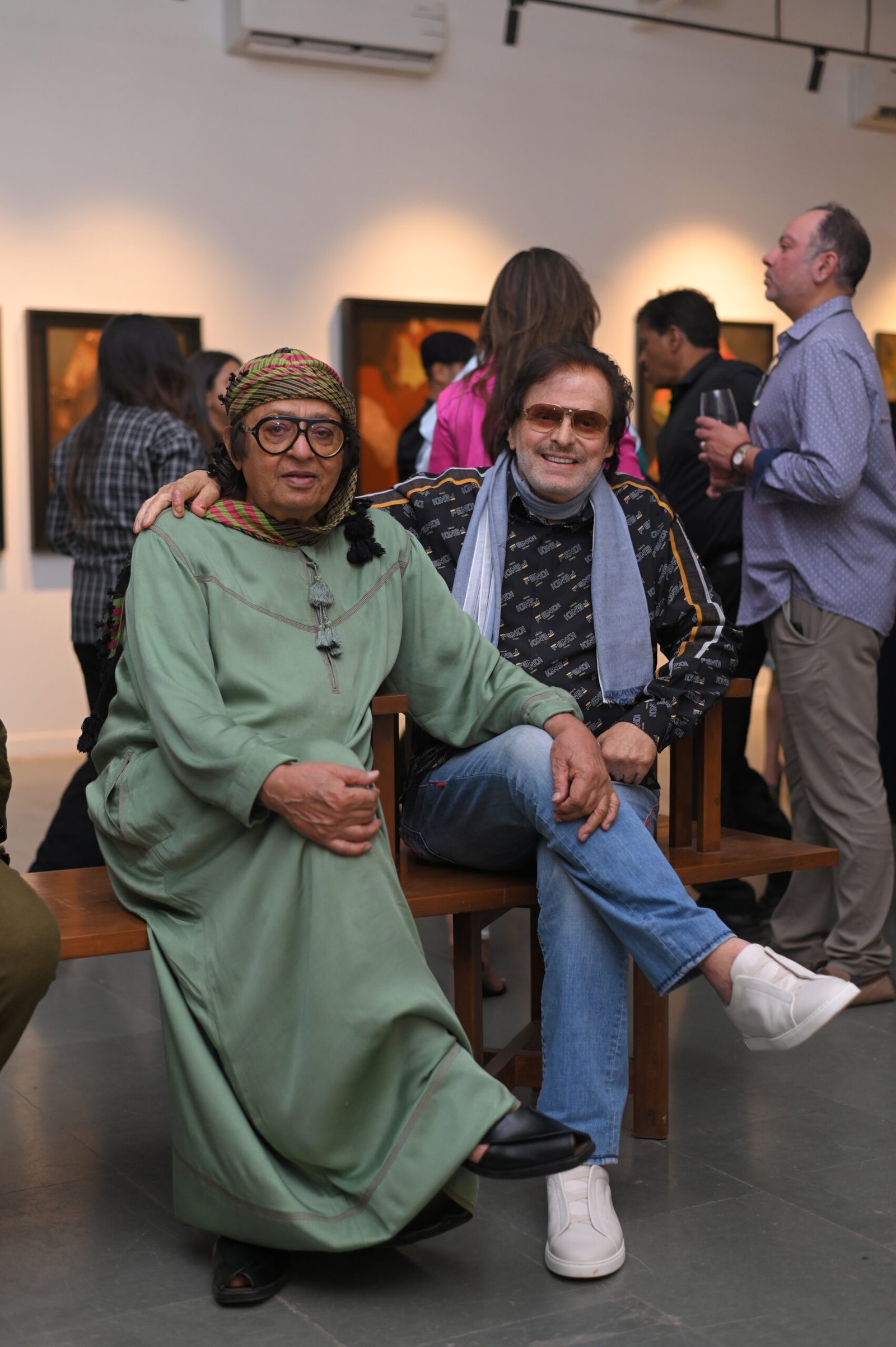
Artists often tend to be deeply introspective – immersed in their inner worlds, constantly mining emotion and memory to create. But I believe children have a beautiful way of pulling you outside yourself. That shift happened for me in 2015, when I had my son. It was a profound change, he taught me what it means to love unconditionally, in a world that’s otherwise often so transactional. Motherhood also brought a new stillness into my life, a quiet grounding that subtly influenced my art. I began to use more colour, there was a softness and openness that emerged in my work after he was born. These are the quiet transformations that happen when children enter your life. They don’t just change your routine; they change your emotional language.
What values from your family heritage do you find yourself carrying forward, both in life and in your work?
Both my parents are entirely self-made. My father came to Bombay (Mumbai) with no money, no godfather, no contacts – only his work, passion, and a deep belief in himself. He built everything from the ground up, and that spirit shaped me. He instilled in me a strong sense of value for what we have, for money, and for effort. I was never spoiled, and that grounding has served me well.
What’s next on the horizon for you? Any new show, collaboration or adventure you’re excited about?
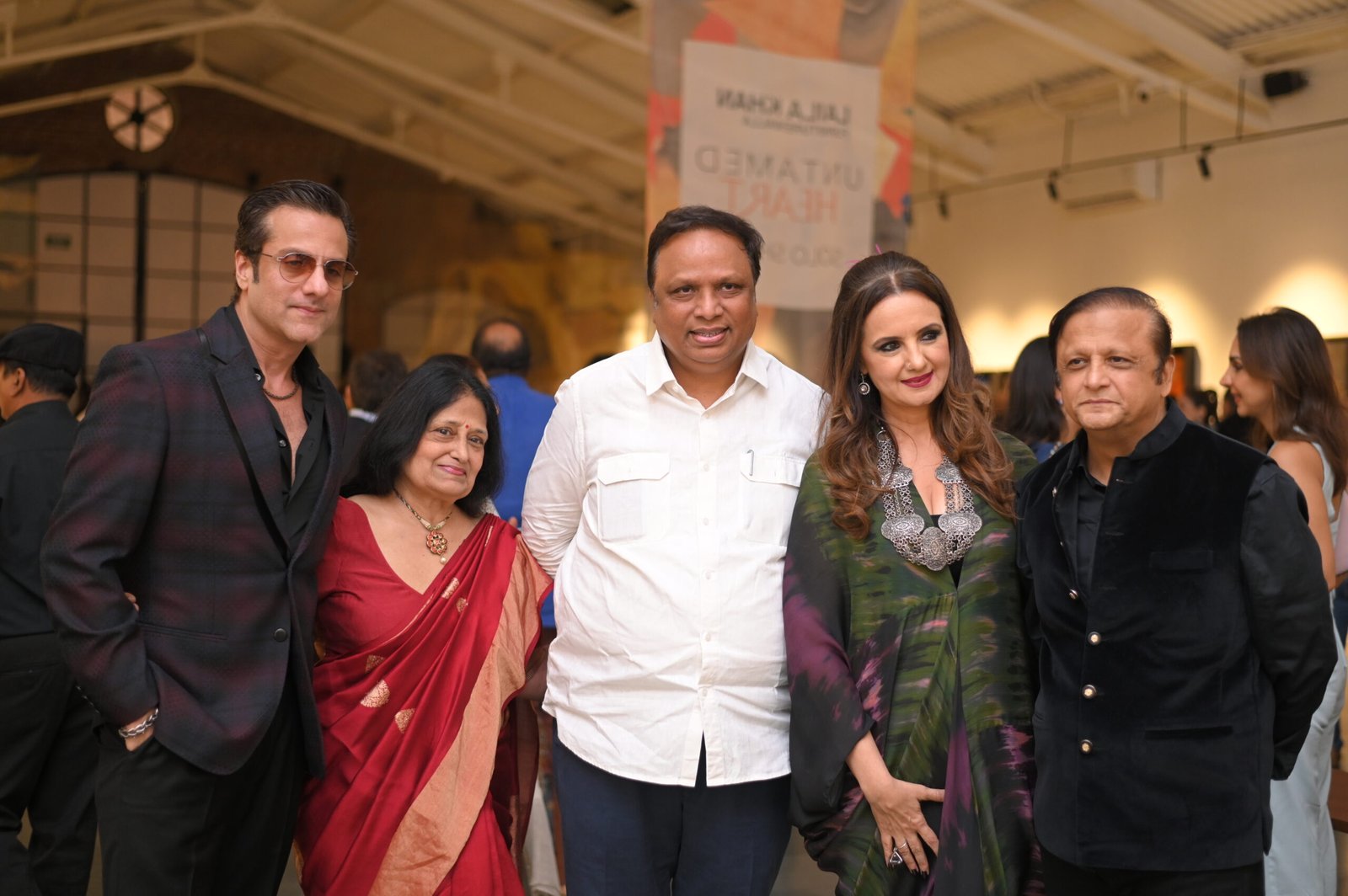
One project very close to my heart and something I’ve quietly nurtured for some time is the idea of creating a coffee table book on my father. Alongside this, I’m now preparing for my next show. A part of me feels content after the recent exhibition. To hear that it resonated with people on a spiritual level, that it touched something within them, is the most fulfilling validation I could ask for.
